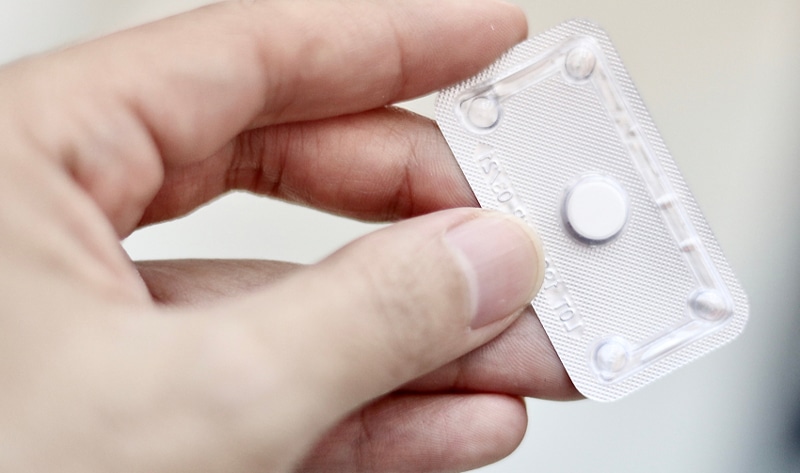
Emergency Contraceptive Pills
Emergency contraceptive pills (ECPs) are a commonly used method for preventing pregnancy after unprotected sex. These pills often contain levonorgestrel, a synthetic hormone that inhibits ovulation and alters the uterine lining to prevent implantation. They are most effective when taken within 72 hours after unprotected sex.Copper Intrauterine Device (IUD)
The copper IUD is a highly effective form of emergency contraception that can be inserted up to five days after unprotected intercourse. It works by creating an environment in the uterus that is toxic to sperm and prevents fertilization. It can also disrupt the implantation process if fertilization has occurred.Combination Hormonal Emergency Contraception
This method involves taking two doses of regular birth control pills containing both estrogen and progestin within a specific timeframe. These hormones work together to prevent ovulation and alter the cervical mucus, making it difficult for sperm to reach the egg.Progestin-Only Pills
Progestin-only emergency contraceptive pills, also known as the “mini-pill,” can be taken within 72 hours after unprotected sex. They primarily work by delaying ovulation and altering cervical mucus consistency. Unlike combination pills, progestin-only pills don’t contain estrogen, making them suitable for individuals who are sensitive to estrogen.EllaOne – The Ulipristal Acetate Pill
EllaOne is a relatively new emergency contraceptive pill that contains ulipristal acetate. It is effective up to five days after unprotected sex and works by blocking the effects of progesterone, thereby delaying ovulation.Effectiveness and Timeframes
The effectiveness of emergency contraception varies depending on the method used and how soon it’s taken after unprotected sex. Generally, the sooner the method is administered, the more effective it is.Safety Considerations
Emergency contraception is safe for most people, but certain medical conditions or medications might affect its suitability. Consultation with a healthcare provider is recommended to ensure safety and effectiveness.Side Effects
Common side effects of emergency contraception include nausea, vomiting, irregular menstrual bleeding, and breast tenderness. These effects are usually temporary and subside within a few days.Accessibility and Cost
Emergency contraception is available over-the-counter at most pharmacies and doesn’t require a prescription. The cost varies depending on the specific method and brand, but affordable options are generally accessible.Emergency Contraception for Different Situations
Emergency contraception is not just a “plan B” for contraceptive accidents; it can also be used in cases of sexual assault or when a regular method was not used. It provides a way to regain control over reproductive choices.Myths and Misconceptions
There are many misconceptions surrounding emergency contraception, including its perceived effectiveness, safety concerns, and religious implications. It’s essential to be informed and rely on accurate information.Consulting a Healthcare Provider
While most emergency contraception methods are available without a prescription, consulting a healthcare provider is advisable. They can offer guidance on the most suitable method based on individual health and circumstances. https://vauro.net/health-medical/emergency-contraception/Conclusion
Emergency contraception plays a vital role in preventing unplanned pregnancies and offering individuals a second chance to protect their reproductive choices. With various methods available, it’s important to be aware of the options and make informed decisions.Can Fitness Equipment Be Used for Emergency Contraception?
No, home gym equipment cannot be used for emergency contraception. Fitness equipment is designed for physical exercise and strength training purposes, not for contraception methods. It is essential to utilize specific emergency contraception methods and consult a healthcare professional for guidance in such situations.
FAQs
- Can emergency contraception be used as a regular birth control method?No, emergency contraception should only be used as a backup option. It’s not as effective as regular contraceptive methods.
- Are there age restrictions for purchasing emergency contraception?Generally, emergency contraception is available to individuals of all ages without any age restrictions.
- Does using emergency contraception have long-term effects on fertility?No, using emergency contraception does not have long-term effects on fertility.
- Can emergency contraception protect against sexually transmitted infections (STIs)?No, emergency contraception only prevents pregnancy and does not provide protection against STIs. It’s essential to use barrier methods for STI prevention.
- What should I do if I vomit after taking an emergency contraceptive pill?If you vomit within two hours of taking an ECP, it might not have been fully absorbed. Consult a healthcare provider and consider taking another dose.
